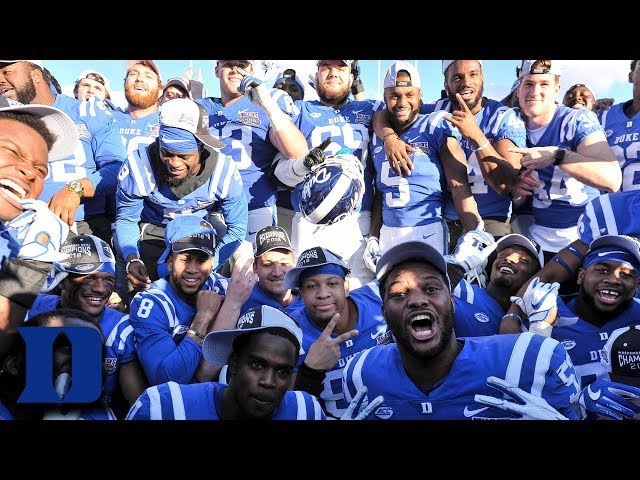Team History
The Duke Blue Devils football team, initially known as the Trinity Blue and White, began its journey in the world of college football in 1888. This marked the inception of a program that would evolve significantly over the years. The team’s early years were foundational, setting the stage for future successes and challenges. As the team transitioned into the Duke Blue Devils, their identity and prowess on the football field began to take shape, reflecting their growing prominence in collegiate football.
Foundation and Early Years
The team’s foundation can be traced back to Trinity College, where it first began competing in football. The transition from Trinity College to Duke University was a pivotal moment in the team’s history, bringing about a change in name and identity. This period saw the appointment of several head coaches, including Herman Steiner and E. L. Alexander, who were instrumental in shaping the early years of Duke’s football program. Under their guidance, the team began to establish itself, with notable performances that hinted at the potential of the Blue Devils.
Notable Early Achievements
During these foundational years, Duke’s football team began to make its mark, with the leadership of coaches like Wallace Wade significantly impacting the team’s direction. Wade, who joined Duke after a successful tenure at Alabama, brought with him a wealth of experience and success. His contributions were profound, leading Duke to multiple Southern Conference championships and appearances in prestigious bowl games like the Rose Bowl. These achievements not only elevated the status of Duke’s football program but also laid a foundation for future successes.
Periods of Change
The Duke Blue Devils football program has experienced various periods of change, marked by transitions in coaching and shifts in conference affiliations. These changes often reflected broader trends in college football and the university’s own evolving priorities. Coaches like William Murray and Steve Spurrier played pivotal roles during their respective tenures, contributing to both high points and challenges faced by the team. Their leadership during times of change helped shape the character and direction of Duke’s football program.
Championships and Achievements
Duke’s football program has a rich history of achievements, including conference championships and bowl game appearances. The team’s success under coaches like Wallace Wade and Bill Murray, including ACC championships and notable bowl games, highlights the program’s capacity for excellence. These accomplishments have not only brought recognition to the university but have also instilled a sense of pride and tradition within the Duke football community.
Current Roster
The current roster of the Duke Blue Devils football team reflects a diverse and talented group of athletes, committed to continuing the legacy of excellence and competition that has characterized the program. Under the guidance of the current coaching staff, these players strive to achieve success on the field, embodying the spirit and resilience that have been hallmarks of Duke football.
Management and Coaching Staff
The management and coaching staff of the Duke Blue Devils football team play a crucial role in the development and performance of the team. Their leadership and strategic vision are essential for fostering a competitive and cohesive unit, capable of achieving success in the highly competitive landscape of college football.
Home Stadium Information
Wallace Wade Stadium, named after the legendary coach Wallace Wade, serves as the home of the Duke Blue Devils football team. This historic venue has hosted countless memorable games and moments, serving as a testament to the team’s rich history and the passionate support of its fans. The stadium not only provides a competitive advantage for the Blue Devils but also stands as a symbol of the university’s commitment to excellence in athletics.
-
*********** ***** ******* *** ***** ** ************ **** ********* *****dd.mm.yyyy 00:00 PM
-
****** *********** **** ** ***** ****** *** **** *** ******: ********* *** ******* *** ****'* ****dd.mm.yyyy 00:00 PM
-
*********-***** ********: **** 6 **** *** ***** *** * ********* **** 7dd.mm.yyyy 00:00 PM
-
**********-************ *******: ****** ****ć, ******* *******, *** * ********* ********** ********dd.mm.yyyy 00:00 PM
-
********* **** ********* ** *** ***: ********* *** ********* ** ****** ******** **. *** *** *****dd.mm.yyyy 00:00 PM
-
****************** ******* **********: *** ********' **** ****dd.mm.yyyy 00:00 PM







